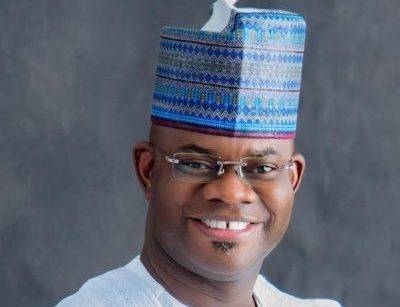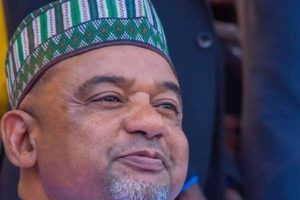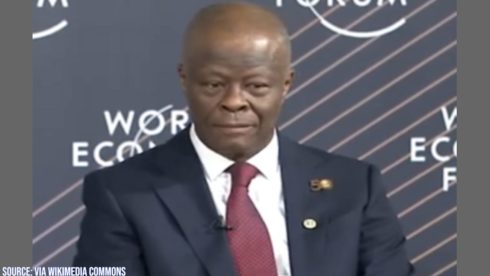The recent announcement by the Health Minister Dr Tunji Alausa regarding a new policy aimed at tackling the issue of brain drain in the healthcare sector has ignited fervent discussions within the medical community. This policy, which prohibits health workers from taking leave of absence if they plan to work abroad, has drawn both support and criticism. Dr. Tunji Alausa, the Minister of State for Health, underscored that this initiative is a pivotal step in the government’s comprehensive strategy to retain skilled professionals within the nation’s healthcare infrastructure.
Dr Tunji Alausa the Health Minister’s announcement of the policy has not been without controversy, as it raises concerns about individual liberties and the broader implications for the healthcare workforce. While some applaud the government’s proactive approach to addressing brain drain, others argue that restricting health workers’ ability to seek opportunities abroad may have unintended consequences. Despite the debate, Dr Tunji Alausa remains steadfast in his commitment to bolstering the domestic healthcare system and ensuring that skilled professionals contribute to the nation’s medical landscape.
Dr Tunji Alausa: Restrictions on Working Abroad
In adherence to President Bola Tinubu’s Executive Order, healthcare workers aiming to explore opportunities abroad are now required to tender their resignations before embarking on their journeys. This shift in policy is a proactive measure aimed at curbing the growing trend of ‘Japa Syndrome’, wherein skilled professionals, particularly in the healthcare sector, opt to leave the country for better prospects overseas. By mandating this step, the government intends to exert greater control over the emigration of healthcare professionals and mitigate the potential impact on the nation’s healthcare system.
Under the new directive, stricter regulations are being implemented to manage the outflow of healthcare workers and mitigate the potential adverse effects on the domestic healthcare sector. This measure underscores the government’s commitment to safeguarding the nation’s healthcare infrastructure and ensuring the availability of skilled professionals to meet the needs of the populace. By aligning with President Tinubu’s Executive Order, authorities aim to strike a balance between facilitating opportunities for personal and professional growth abroad while simultaneously addressing the pressing challenges posed by the exodus of healthcare professionals.
Dr Tunji Alausa: Innovative Approach to Retaining Healthcare Professionals
Dr Tunji Alausa’s recent visit to the Neuro-Psychiatric Hospital in Aro shed light on President Tinubu’s visionary Executive Order, designed to combat the pervasive issue of brain drain within Nigeria’s healthcare sector. Delving into the core objectives of this directive, Dr Tunji Alausa articulated the urgent need to retain skilled healthcare workers within the country. President Tinubu’s initiative seeks to disrupt the exodus of talent by introducing a comprehensive framework of incentives, tailored to entice professionals to stay and contribute to the nation’s healthcare ecosystem. By addressing the root causes compelling professionals to seek opportunities abroad, such as inadequate infrastructure and limited career advancement prospects, the government aims to foster a conducive environment that encourages retention and promotes career growth.
The implementation of President Tinubu’s Executive Order marks a pivotal shift in Nigeria’s healthcare landscape, with a primary focus on fortifying the healthcare workforce and bolstering service delivery across the nation. Through targeted interventions aimed at mitigating the factors fueling brain drain, such as insufficient remuneration and suboptimal working conditions, the government endeavors to create a sustainable ecosystem where healthcare professionals are valued and empowered.
By fostering a sense of belonging and providing avenues for professional development within the country, this initiative aims to cultivate a skilled workforce capable of meeting the diverse healthcare needs of Nigeria’s populace. Ultimately, the successful execution of President Tinubu’s Executive Order holds the promise of a revitalized healthcare sector, characterized by enhanced workforce stability and improved healthcare outcomes for all citizens.
Dr Tunji Alausa: Government’s Ambitious Plan to Expand Healthcare Workforce
In a proactive move aimed at fortifying the nation’s healthcare sector, the government has unveiled a visionary strategy to augment the nursing workforce by a staggering 120,000 personnel. Dr Tunji Alausa, a prominent figure in healthcare administration, emphasized the pivotal role of this initiative, underlining a remarkable surge in annual nurse recruitment from a modest 28,000 to an impressive 68,000. This resolute surge in recruitment signals a resounding commitment by the government to alleviate staffing scarcities and elevate the standard of healthcare provision nationwide.
The government’s decisive action to bolster nursing ranks not only signifies a strategic response to immediate staffing gaps but also underscores a profound dedication to fortifying the healthcare infrastructure for future resilience. With an eye towards enhancing healthcare accessibility and quality, this ambitious recruitment drive embodies a steadfast resolve to meet the evolving demands of the populace and foster a healthier, more robust society.
Dr Tunji Alausa: Addressing Brain Drain in Nigeria’s Healthcare Sector
Brain drain poses a significant challenge to Nigeria’s healthcare sector, as skilled professionals often choose to pursue opportunities abroad. President Tinubu’s Executive Order and the implementation of a new policy prohibiting health worker leave signify a proactive approach to counter this trend. These initiatives aim to cultivate a supportive environment within the country, encouraging healthcare professionals to remain and contribute to the development of the domestic healthcare system. By prioritizing retention strategies and enhancing recruitment practices, the government is taking crucial steps to fortify the future of Nigeria’s healthcare sector.
President Tinubu’s Executive Order and the recent policy restricting health worker leave mark a pivotal shift towards retaining skilled professionals within Nigeria’s healthcare sector. These measures seek to address the root causes of brain drain by fostering a more favorable working environment domestically. Through targeted efforts to enhance retention and attract new talent, the government aims to bolster the resilience and sustainability of Nigeria’s healthcare system. By prioritizing the needs of healthcare professionals and creating opportunities for career advancement, Nigeria can mitigate the effects of brain drain and ensure the continued growth and prosperity of its healthcare sector.
Enhancing Healthcare Access and Workforce Stability in Nigeria
In response to the pressing need for bolstering Nigeria’s healthcare infrastructure, strategic measures are being implemented to usher in a transformative shift in the sector. With a keen focus on retention and recruitment strategies, the government is poised to fortify the healthcare workforce, thereby augmenting access to high-quality medical services nationwide. This concerted effort is primed to address the persistent issue of brain drain, which has long plagued the country’s healthcare system, by fostering an environment conducive to professional growth and fulfillment.
As Nigeria charts a course towards a sustainable healthcare future, stakeholders are optimistic about the potential impact of these initiatives. By nurturing a resilient workforce and prioritizing equitable access to care, the nation is laying the groundwork for a healthcare ecosystem that is responsive to the diverse needs of its populace. Through collaborative endeavors and innovative solutions, Nigeria is poised to emerge as a beacon of progress in the realm of healthcare, fostering improved health outcomes and enhanced well-being for all its citizens.
Table of Contents
Discover more from OGM News NG
Subscribe to get the latest posts sent to your email.













